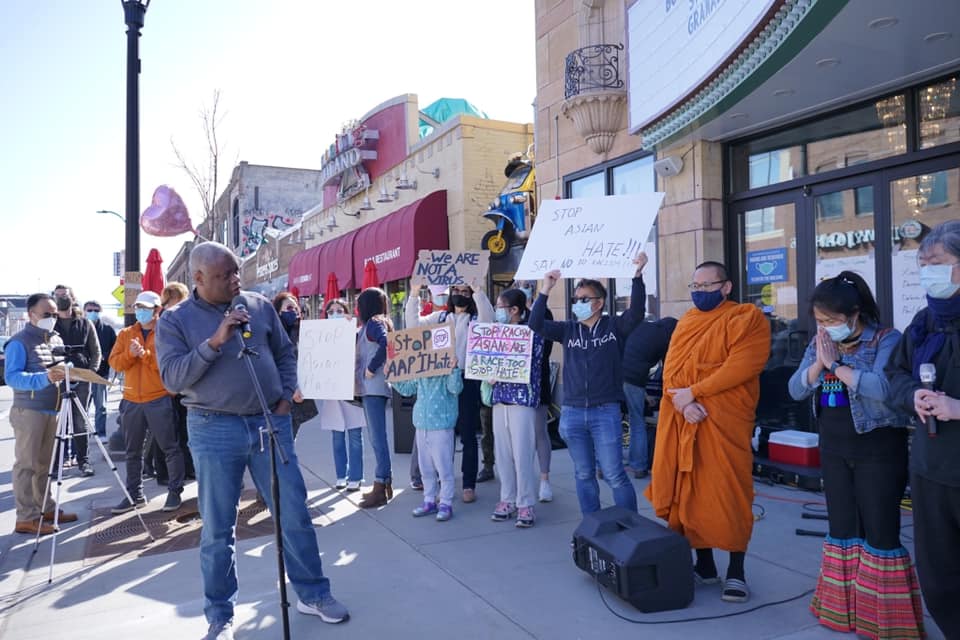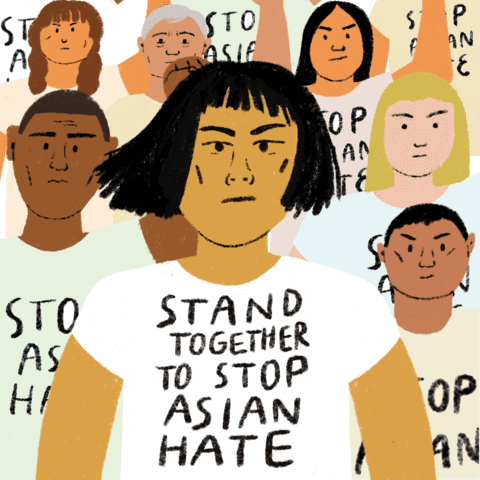by Janie Ye, Wayzata High School

Hate towards the Asian American Pacific Islander (AAPI) community is a notable problem in society. During the COVID-19 pandemic, increased violence and discrimination towards the AAPI community revealed the severity of the prejudice against Asian Americans in the United States. Even after the pandemic, Asian Americans faced (and still face) bigotry and hate from the general public. Despite multiple efforts to combat hate towards the AAPI community, discrimination is still prominent in society and it is important to acknowledge why it is happening and how to stop it.
Right now, actual reported hate crimes against Asian Americans have decreased since the pandemic. Since the economy has recovered and the pandemic has died down, there have been less opportunities to blame and scapegoat Asian Americans. However, these hate crimes are only the ones that are reported, and the decrease in hate crimes may also be a result of less frequent reports. “The frequency at which Asian Americans had to confront hate and racism may have taken a mental toll, prompting many to feel burned out and less inclined to turn to law enforcement or other reporting forums than in the past” (Stephanie Chan, Stop AAPI Hate). Asian Americans may have become accustomed to discrimination and violence and stopped reporting because hate has become normalized. Therefore, the actual number of hate crimes may be inaccurate and it is important to acknowledge that there are many cases that have not been reported.
 Despite the reported decrease in hate crimes, discrimination is still ongoing and continues to affect Asian Americans negatively. A decrease in hate crimes does not mean a decrease in hate. Nearing the end of 2023, an AAPI data poll showed “1 in 3 US Asians and Pacific Islanders faced racial abuse this year” (The Associated Press). Racial abuse includes verbal harassment, physical threats, and cyberbullying. Asian Americans also face discrimination in the workplace when applying for jobs and in public when partaking in various activities. On September 21, a group of juveniles aboard a train in Boston attempted to rob and taunt passengers based on their race. An Asian victim, Vivian Dang, stated that the juveniles called her derogatory terms and followed her when she tried to avoid them. Incidents such as these where race is a factor are not uncommon in the United States. Discrimination, especially towards Asian Americans, has not disappeared and will not disappear until something is done.
Despite the reported decrease in hate crimes, discrimination is still ongoing and continues to affect Asian Americans negatively. A decrease in hate crimes does not mean a decrease in hate. Nearing the end of 2023, an AAPI data poll showed “1 in 3 US Asians and Pacific Islanders faced racial abuse this year” (The Associated Press). Racial abuse includes verbal harassment, physical threats, and cyberbullying. Asian Americans also face discrimination in the workplace when applying for jobs and in public when partaking in various activities. On September 21, a group of juveniles aboard a train in Boston attempted to rob and taunt passengers based on their race. An Asian victim, Vivian Dang, stated that the juveniles called her derogatory terms and followed her when she tried to avoid them. Incidents such as these where race is a factor are not uncommon in the United States. Discrimination, especially towards Asian Americans, has not disappeared and will not disappear until something is done.
Although society continues to progress quickly, the general public should note that there are still disparities that affect communities and will not cease to exist on their own. Even if there are less reported hate crimes, racism still exists. Violence is still a problem that affects many Asian Americans and their everyday lives. The current situation regarding hate towards the AAPI community needs to be dealt with in an efficient manner in order to prevent further racism and violence in society.







